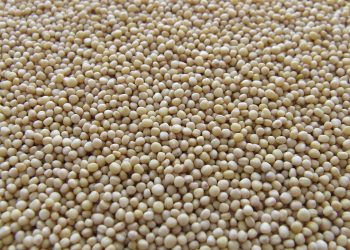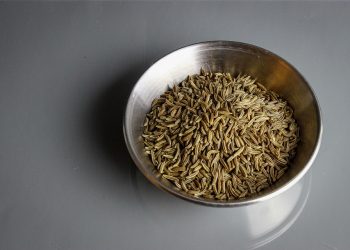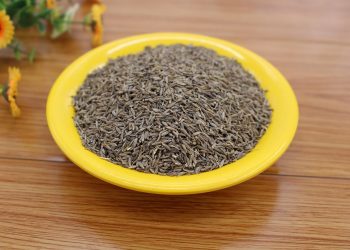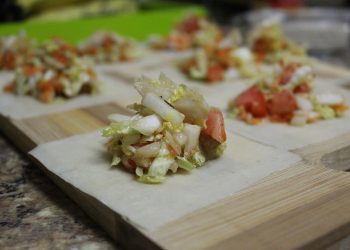Did you know that carrots are not just a crunchy snack but also a powerhouse for your gut health? These vibrant orange veggies are packed with fiber, vitamins, and antioxidants that can make your digestive system sing. Whether you’re looking to boost your fiber intake or simply want to enjoy some tasty meals, carrots can be your best friend. Let’s dive into five delicious carrot recipes that not only tantalize your taste buds but also support a happier gut.
Contents
1. Spiced Carrot and Ginger Soup
Why It’s Great for Your Gut
This soup combines the fiber of carrots with the digestive benefits of ginger. Ginger is known for its anti-inflammatory properties and can help soothe the digestive tract.
Ingredients
- 4 large carrots, chopped
- 1 onion, diced
- 2 cloves garlic, minced
- 1-inch piece of fresh ginger, grated
- 4 cups vegetable broth
- 1 teaspoon cumin
- 1 teaspoon coriander
- Salt and pepper to taste
- Olive oil for sautéing
Instructions
- In a large pot, heat olive oil over medium heat. Add the onion and garlic, sautéing until translucent.
- Stir in the ginger, cumin, and coriander, cooking for another minute until fragrant.
- Add the chopped carrots and vegetable broth. Bring to a boil, then reduce to a simmer for about 20 minutes until the carrots are tender.
- Use an immersion blender to puree the soup until smooth. Season with salt and pepper to taste.
- Serve hot, garnished with a sprinkle of fresh herbs if desired.
Pros and Cons
Pros: This soup is not only easy to prepare but also freezes well, making it perfect for meal prep.
Cons: If you’re not a fan of ginger, you might want to reduce the amount or omit it altogether.
2. Carrot and Chickpea Salad
Why It’s Great for Your Gut
Chickpeas are another fiber-rich food, and when paired with carrots, they create a gut-friendly dish that’s high in protein and nutrients.
Ingredients
- 2 cups grated carrots
- 1 can chickpeas, rinsed and drained
- 1/4 cup red onion, finely chopped
- 1/4 cup fresh parsley, chopped
- Juice of 1 lemon
- 2 tablespoons olive oil
- Salt and pepper to taste
Instructions
- In a large bowl, combine the grated carrots, chickpeas, red onion, and parsley.
- In a small bowl, whisk together the lemon juice, olive oil, salt, and pepper.
- Pour the dressing over the salad and toss to combine.
- Let it sit for at least 15 minutes to allow the flavors to meld before serving.
Pros and Cons
Pros: This salad is refreshing and can be served as a side or a main dish. It’s also vegan and gluten-free!
Cons: If you’re sensitive to raw onions, you may want to substitute with green onions or omit them entirely.
3. Roasted Carrots with Honey and Thyme
Why It’s Great for Your Gut
Roasting carrots enhances their natural sweetness and makes them easier to digest. The addition of honey provides a touch of natural sweetness, while thyme adds flavor and potential digestive benefits.
Ingredients
- 1 pound carrots, peeled and cut into sticks
- 2 tablespoons honey
- 1 tablespoon olive oil
- 1 teaspoon fresh thyme (or 1/2 teaspoon dried thyme)
- Salt and pepper to taste
Instructions
- Preheat your oven to 400°F (200°C).
- In a bowl, toss the carrot sticks with honey, olive oil, thyme, salt, and pepper.
- Spread the carrots on a baking sheet in a single layer.
- Roast for 20–25 minutes, or until the carrots are tender and caramelized, tossing halfway through.
Pros and Cons
Pros: This dish is simple and perfect for any weeknight dinner. It pairs beautifully with meats or can be enjoyed on its own.
Cons: If you’re avoiding sugar, you might want to skip the honey or use a sugar substitute.
4. Carrot and Quinoa Bowl
Why It’s Great for Your Gut
Quinoa is a complete protein and a great source of fiber, making it an excellent base for a gut-friendly meal. Combined with carrots, this bowl is both nutritious and satisfying.
Ingredients
- 1 cup quinoa, rinsed
- 2 cups vegetable broth or water
- 2 cups grated carrots
- 1 bell pepper, diced
- 1/2 cup corn (fresh or frozen)
- 1 tablespoon olive oil
- 2 tablespoons apple cider vinegar
- Salt and pepper to taste
Instructions
- In a saucepan, combine the quinoa and vegetable broth or water. Bring to a boil, then reduce heat and simmer for about 15 minutes, or until the quinoa is fluffy.
- In a large bowl, mix the grated carrots, bell pepper, and corn.
- Once the quinoa is cooked, add it to the vegetable mixture.
- Drizzle with olive oil and apple cider vinegar, then season with salt and pepper. Toss to combine and serve warm or cold.
Pros and Cons
Pros: This bowl is versatile; you can add any veggies you have on hand or top it with avocado for healthy fats.
Cons: Cooking quinoa can be tricky for beginners, so be sure to follow the instructions carefully to avoid mushiness.
5. Carrot Cake Overnight Oats
Why It’s Great for Your Gut
Overnight oats are a fantastic way to incorporate fiber into your breakfast. Carrots add a natural sweetness and a nutritional boost to this sweet treat.
Ingredients
- 1 cup rolled oats
- 1 cup almond milk (or milk of choice)
- 1/2 cup grated carrots
- 1 tablespoon chia seeds
- 1 teaspoon cinnamon
- 1 tablespoon maple syrup (optional)
- Walnuts or raisins for topping
Instructions
- In a mason jar or bowl, combine the oats, almond milk, grated carrots, chia seeds, cinnamon, and maple syrup.
- Stir well to combine, then cover and refrigerate overnight.
- In the morning, stir the oats again and top with walnuts or raisins before serving.
Pros and Cons
Pros: This breakfast is quick to prepare and can be made in advance, making it perfect for busy mornings.
Cons: If you’re not a fan of raw oats, you might want to cook them instead.
FAQs
What are the digestive benefits of carrots?
Carrots are high in fiber, which helps promote healthy digestion and regular bowel movements. They also contain antioxidants that can support gut health.
How can I incorporate more carrots into my diet?
Try adding grated carrots to salads, soups, or smoothies. You can also snack on carrot sticks with hummus or dip.
Are there any downsides to eating too many carrots?
While carrots are healthy, consuming them in excessive amounts can lead to carotenemia, a condition that causes your skin to turn yellowish-orange due to high beta-carotene levels.
Can I use frozen carrots in these recipes?
Yes! Frozen carrots can be a convenient option. Just make sure to thaw and drain them before using in salads or soups.
Conclusion
Carrots are more than just a colorful addition to your plate; they’re a versatile ingredient that can enhance your gut health in delicious ways. Whether you’re sipping on a warm soup or enjoying a refreshing salad, these recipes offer something for everyone. So, why not give them a try? Your gut will thank you!
Remember, while these recipes are great for gut health, it’s always a good idea to consult a healthcare provider for personalized dietary advice.
This article is for educational purposes only and is not a substitute for professional medical advice. Always consult a qualified healthcare provider before making changes to your health routine.
References
- Slavin, J. L. (2013). Fiber and prebiotics: Mechanisms and health benefits. Nutrients, 5(4), 1417-1435. https://www.ncbi.nlm.nih.gov/pmc/articles/PMC3705355/
- Mayo Clinic. (2021). Dietary fiber: Essential for a healthy diet. https://www.mayoclinic.org/healthy-lifestyle/nutrition-and-healthy-eating/in-depth/fiber/art-20043983
- Harvard Health Publishing. (2020). The benefits of fiber. https://www.health.harvard.edu/staying-healthy/the-benefits-of-fiber
Get Your FREE Natural Health Guide!
Subscribe now and receive our exclusive ebook packed with natural health tips, practical wellness advice, and easy lifestyle changes — delivered straight to your inbox.














